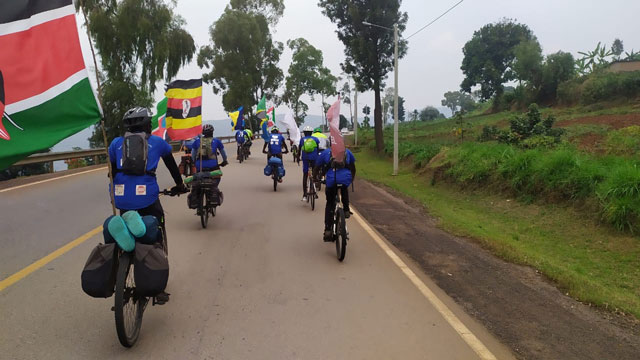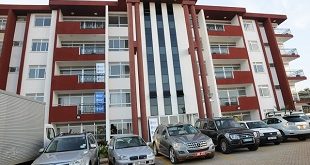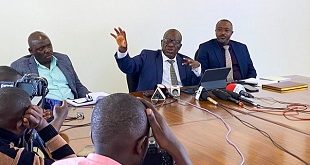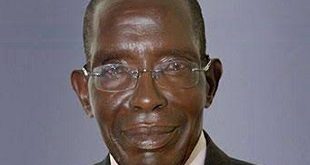
Cyclists promoting EAC integration stuck at Burundi border
Bujumbura, Burundi | THE INDEPENDENT | The woes of the Great African Cyclists Safari team currently traversing the East African Community countries has exposed the region’s uncoordinated policies.
For four years now, the Great African Cycling Safari has organised the East African Bicycle Tour, also known as Tour d’EAC through the EAC capitals, to sensitize citizens across the bloc on the integration process and some of the current pressing issues in the region. This years edition of the tour officially kicked off on August 1 and was planned to last 55-days over a distance of 6,000 kilometres.
At least 80 cyclists embarked on this year’s event which focussed on Environmental protection. The event planned started in Tanzania and would go through Nairobi, Kampala and Kigali, Bujumbura, Dodoma and finally, back to Arusha. But the cyclists who were due to embark on their second-last leg of the journey by riding through Burundi starting on August 31 could not be allowed by the country’s authorities.
Instead, they were asked to pay $100 each to test for COVID-19 in the northern district of Nemba near the border with Rwanda.
“Currently we are still at the border crossing from Rwanda to Burundi in Kirundo. We were not able to cross over because of COVID-19 restrictions. They don’t recognize the Rwandan COVID test which was administered on August 28,” the cyclists said.
The blocking of the cyclists by Burundian authorities at the border with Rwanda, was one of the most unexpected hiccups, according to the cyclists and the organisers. Specifically, it has also revealed that nationalist policies remain a big impediment in the regional integration process, more so because it is coming from a purely charitable event meant to sensitise EAC citizens.
The trouble is they cannot raise the $100 each, unless someone or the EAC Secretariat bails them out. Their pleas to the authorities, that they are East Africans carrying out an EAC event have since fallen on deaf ears.
“When you talk about EAC at this border, (Nemba Border point) you will only be told it’s in Arusha by Ngobonziza the border manager. We have faced many challenges but this has to be our biggest one yet,” said John Bosco Balongo, the expedition director.
By Friday afternoon, they were getting worried because their resources, including food, were getting depleted. It is not clear why Burundi has blocked them over a COVID-19 test. At all the borders the cyclists either had their test certificate from one country recognized by the other or were accorded free testing services.
The action by Burundi has raised the question of the commitment to the integration process, and specifically why it is disregarding the agreement by the EAC Heads of State to harmonise the containment measures. Under this, the countries recognize each other’s test certificates and are supposed to have harmonized test fees.
“We had free testing at the Tanzania-Kenya border, free testing at Kenya-Uganda border, free testing at Uganda-Rwanda border but Burundi for rapid testing is USD 100,” Balongo said, adding that “we just need guidance from the EAC on what to do to avoid more delays and frustrations from the Burundians Government.
But this is not the first time that a country is disregarding the agreement.
In May, the EAC Sectoral Council on Trade, Industry, Finance and Investment reported the non-recognition of COVID-19 certificates by the Partner States, the unharmonised charges for Covid-19 testing and the validity of COVID-19 certificates.
Daniel Murenzi, the Principal Information Technology Officer for EAC says that the mutual recognition system for the COVID-19 test certificate is functional and easy to use. Murenzi wonders why some member-states would still disregard the system. He says the system has been made easier and more effective with the establishment of the EACPass, an app-based system that records the test details of a negative certificate and digitally transmits them to any relevant use via the mobile phone system.
“EACPass facilitates safe travel. It integrates all East African Community Countries Negative test results for covid-19 and those vaccinated supporting those who are travelling across the regional and international and could be the key to having a safe, seamless trip the next time you travel,” he says.
The incident is a test of the commitment to the integration process by Burundi’s leadership, which has over the last year, showed a renewed interest in regional affairs and good neighbourliness.
In each of the countries, except for South Sudan due to insecurity there, the youth drawn from EAC and beyond, carry out environment-related activities, including planting trees, and also note the different environmental issues affecting the communities. The riders mentioned Uganda as the dirtiest, saying Ugandans do not seem to care about the environment, with towns choking on plastic waste.
****
URN
 The Independent Uganda: You get the Truth we Pay the Price
The Independent Uganda: You get the Truth we Pay the Price


